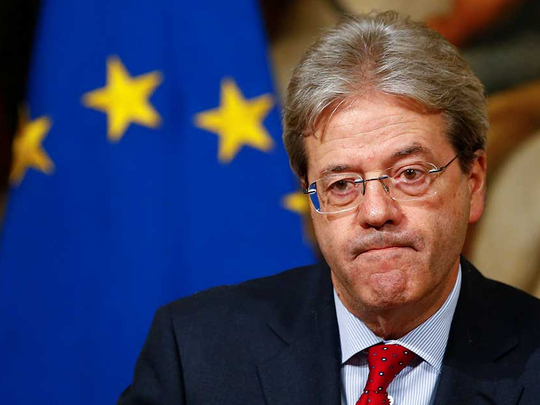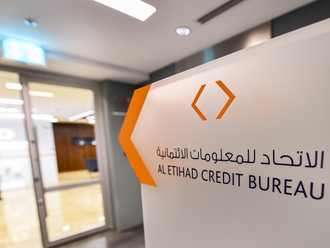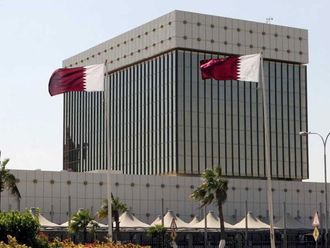
Rome, Milan: Italy’s parliament gave the green light on Wednesday for a €20 billion (Dh76.3 billion) plan to prop up the country’s weaker banks, starting with a bailout as early as this week for the third largest, Monte dei Paschi di Siena.
The Tuscan lender, recently judged the weakest of the European Union’s major banks, needs to erase a mountain of bad loans and raise €5 billion in capital by the end of this month or risk being wound down by European regulators.
But its hopes of raising the money from private investors, via a debt-for-equity swap and a share placement that ends on Thursday, are fading. A failure of Monte dei Paschi would rock Italy’s banking system, the Eurozone’s fourth largest.
In the latest prospectus for the deal, the bank warned it could run out of liquidity in four months — compared to a previous 11 months estimate published as recently as Sunday.
It also said a key investor in its rescue plan, bank bailout fund Atlante, had set new conditions for its participation.
If Monte dei Paschi’s capital plan fails, Prime Minister Paolo Gentiloni’s new government is likely to meet this week to issue an emergency decree to inject capital into it.
But that could prove to be politically explosive given that investors are required to bear losses under EU bailout rules.
Parliamentary approval for the 20 billion euro government plan was needed to allow the state to take on new debt. Italy’s debt burden, at about 133 per cent of annual output, is already the second highest in the Eurozone after Greece.
The measure approved by parliament on Wednesday says the state can borrow money to provide “an adequate level of liquidity into the banking system” and can reinforce a lender’s capital by “underwriting new shares”.
The failure of Monte dei Paschi, the world’s oldest bank, would threaten the savings of thousands of Italians and could undermine confidence in the country’s wider banking sector, saddled with a third of the Eurozone’s total bad loans.
Before the vote, Economy Minister Pier Carlo Padoan vowed to shield retail bank investors from losses.
“The impact on savers, if a [government] intervention should take place, will be absolutely minimised or non-existent,” Padoan told parliament.
Monte dei Paschi said it expected its net liquidity position, now at €10.6 billion, to turn negative after four months.
It also said Atlante’s plan to buy bad loans would go ahead only if the state took part in the bank’s cash call for no more than €1 billion and without triggering state bailout rules.
The bank’s shares fell as much as 18 per cent on the liquidity concerns, but cut losses after news that parliament had approved the government’s €20-billion safety net.












